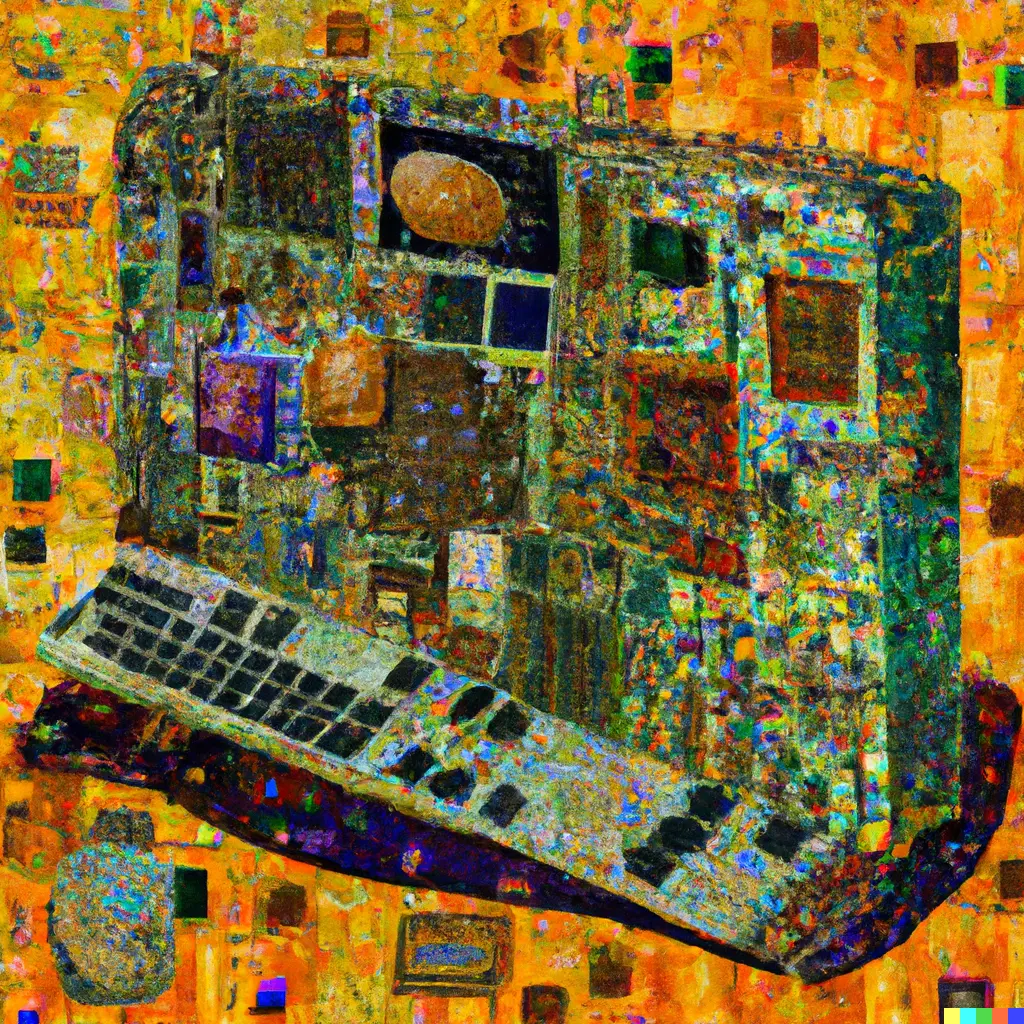TBF there are far, far too many technological solutions that are “science will save us” but haven’t been fully fleshed out, studied, or require some modest form of unobtainium to work in mass deployment. Also, a huge chunk of those solutions would have to have been implemented 20 years ago, yet haven’t even made it off the proverbial drawing board yet.
IMO solutions need to be implemented now, like wind, solar, especially nuclear power, EV, etc. Yeah, nuclear is temporary, and yes, nothing stays in place longer than a temporary solution, but it’s a known and can be built now rather than yet another 5-15 years of waiting for untried tech solutions. Unfortunately the comic isn’t entirely wrong, we are going to need to lose some things if we want to save ourselves.
Yeah, nuclear is temporary, and yes, nothing stays in place longer than a temporary solution, but it’s a known and can be built now rather than yet another 5-15 years of waiting for untried tech solutions.
I guess you could say nuclear power can be built “now”. From a certain point of view.
The last nuclear reactor to go online in the United States took 14 years to build - from breaking ground in 2009 to going online in 2023 - at a cost of thirty billion dollars.
And that wasn’t even a new nuclear power site, it was a additional reactor added on as an existing site, so planning and permitting and so on were significantly faster then a new nuclear power plant would be.
So yes, we could start the process of building a new nuclear reactor in the United States and commit 30 billion in taxpayer money to it. And after 20 to 30 years that reactor might come online.
Or we could commit 30 billion dollars to subsidizing wind and solar power, and get that power generation online in the next few years, at a significantly lower cost per kilowatt.
This doesn’t have to be the binary choice you’re making it. Both can be done. Furthermore I also disagree with the premise that imperfect solutions should be immediately discounted. There is no perfect solution.
Both can be done, of course, and we live in a world with limited resources. There’s no reason to commit resources to nuclear when those resources can, demonstratively and statistically, be used far more efficiently to implement other options.
It’s like saying, yes, I can buy a used car for $5k cash now, or, on the other hand, I could pay $50k to get on the waiting list for a Tesla Cybertruck to be delivered in like five years.
And when I point out that the Cybertruck is less reliable, more expensive, and will leave me without a car for 5 years while I’m waiting, you say “well, why don’t you buy the used car and put yourself on the Cybertruck waiting list?”
And I haven’t even touched on the moral and environmental issues with nuclear power. I shouldn’t have to. New nuclear is clearly the least efficient form of non-emitting power generation in the world. That should be the end of the discussion.
Conservatism is a plague that is long overdue for a cure.
They say this and then reject every technological solution that exists. Like wind or solar energy. Trains. Ebikes. The goalposts always get moved to some not yet existant technology so nothing needs to change.
To be fair, I don’t know exactly what is meant.
But my mind went to meat consumption, which is higher in the developed world, is considered indicative of a high standard of living, and, in my opinion, is best addressed not by lab-grown meat (or other technological solutions), but by reduced consumption (the reduced living standard).
I would argue that reduced meat can be either the result of a lower living standard or a higher one. This is the issue a lot of people on each side refuse to see, a higher standard of life can be more efficient with systems either technological or social which make it possible.
Really we need a blend of each, yes the techphobes are right we don’t want to live in battery farms where only efficiency matters but also we don’t want to live in the drudgery of a Neolithic existence. We need to identify and adopt systems that allow a good quality of life and enables diversity of thought and lifestyle, tech can make this possible but is unlikely to do it alone.
Yes it’s difficult but we need social growth, that means people tying new things and demonstrating them to the world. We should be using our absurd luxury and wealth here in the developed nations to help develop solutions everyone can use to live a good life, instead of flexing fast cars and designer clothes we should be spreading knowledge of healthy food, useful educational and organizational tools, community project structures which enable people to work on shared goals and mutually beneficial platforms…
We have a very privileged platform in the world, we should use it to show that even the richest most well educated, traveled and socialised people prefer a low or no meat diet.
The idea that eliminating meat reduces your standard of living is a preconceived bias. It is not an accident you believe that. You are being manipulated. If you investigate you will find that people who do it report improvements in their standard of living, not reduction. Meat is simply a way of refining cheap, sustainable, healthy plants into scarce, expensive, toxic and addictive processed food, by abusing the bodies and minds of sentient creatures. It is literally killing you and everyone you know. The more meat you eat, the younger you die and the more diseases you experience. Nearly all the top ten killers of humans on Earth today, and especially in the Western world, is caused by an animal-based diet: heart disease, stroke, diabetes, Alzheimer’s, cancer, and more. Heart disease, diabetes, AND RECENTLY ALZHEIMER’S have all been reversed in massive clinical trials, by doing little more than eliminating toxic animal products from the diet.
The classic fallacy that industries have sold us over the past decades that technology would solve all our problems. So funny. They are doing the same again with AI
The thing is they have solved an endless litany of problems and improved life for everyone on a radical scale thousands of times, but then people get born into the world snd never see those problems - have you ever even had to worry about milk souring let alone storing produce to last the winter? Have you ever even been attacked by a predator? That was a way of life for our ancestors before technology, the concept of clean drinking water didn’t even come close to meaning the same thing but their version of it was a daily struggle which often went unmet regardless.
Go back in time before the industrial revolution and ask.a serf what their problems are, I bet.you nor I have ever faced a single one of them. It’d be fun to listen to the conversation you explaining that politicians are corrupt and avocados are expensive, he doesn’t know what they are but he says he’s thy literal property of a baron that doesn’t even pretend to care what he thinks and mice got into his grainstore so some of his kids will starve this winter.
Tech had made your life significantly better and the coming wave of ai tools is going to make it much better again and allow things you never even imagined possible like localized food networks and community based industry, you’ll use it all snd move on to complaining asteroid mining is over hyped or whatever comes next
Plot twist: The technological solution requires resources of five earths.
We live much more efficiently than we ever have, there aren’t enough trees and wild game for us to live like the Neolithic - the non tech solution is mass genocide or total ecological destruction of the planet. Not really solutions.
They are very much the solutions our „advanced civilization” is heading (and accelerating) towards.
Remember, the ones on top needed us healthy to report to work on monday. Because they wanted a bigger yacht. Once there is no work, or monday we’re all just wasting oxygen and they won’t shudder sending us to wars or letting us all die off.
That’s what quantum computers are for. We can use parallel universes to eliminate lag in our bitcoin calculations. It’s like we’re stealing their money.
the fuck is this shit doing in a solarpunk community lmao, this is just made up nonsense you’d see on facebook
I both agree and disagree, because this comic is dangerously vague.
A good example is electric cars. It would be great if everyone switched to electric cars, but it would be even better if we built a city that didn’t treat pedestrians, cyclists, and public commuters as second class.
The difference being the latter doesn’t let private equity make fat returns.
And yes ofc we can both.
Trains are a technology. Walkable city planning is a technology.
Those aren’t purely technological solutions though (except in the loosest sense of the word, where any non-hunter-gatherer behavior a human engages in is a technology), as they involve changing the way people live.
The electric car is a mostly drop-in replacement that fits in fine with the existing car centric suburban development model. The transit, cycling, and pedestrian oriented city involves changing how people think about their lives (many people in the US ask how it’s even possible to get groceries without a car) and even changing some of the ways we structure our society (the expectation that the cost of housing will increase forever, or even the expectation that housing should be treated as a commodity to invest in at all, as well as many other things to do with the intersection of finance and landuse).
To give another example inventing new chemical processes to try to make plastic recycling work is a technological solution to the problem of petroleum use and plastic waste. Reducing or eliminating the use of single-use plastics where practicable is a non-technological solution, because it doesn’t involve any new technologies.
In principle I’m not opposed to new technologies and “technological solutions”. However you can see from the above examples that very often the non-technological solution works better. Technological solutions are also very often a poison pill (plastic recycling was made to save the plastic industry, not the planet).
In practice I think we need to use both types of solutions (for example, massively reduce our plastic use, but also use bio-plastics anywhere we can’t). But people have a strong reaction to the idea of so-called technological solutions because of the chilling effect they have on policy changes. We saw this with the loop and hyperloop. Rather than rethinking the policies that lead to the dearth of High-Speed rail in the US and investing in a technology that already existed a bunch of states decided to wait for the latest whizz-bang gadget to come out. And it turns out this was exactly the plan. The hyperloop was never supposed to work, it was just supposed to discourage investment in rail projects.
I think that innovative forms of policy are technologies. If chemistry can have chemical engineers that implement chemical technologies, then political science should have civil engineers who implement political technologies.
My background is in chaos magick, where we refer to our magic spells as techs all the time. And this approach isn’t novel. Psychologists consider things like meditation or applications of the placebo effect technologies. I mean, the brain is a thinking machine just like a computer, and we consider software technologies such as websites and applications to be technologies. Psychological technology is software for a brain, and political technology is software for a society.
I think gardening is a technology, even though it’s just a different way of treating seeds that already exist. Sewing is a technology, the written word is a technology, money is a technology. And words and money exist only inside our heads.
We should be getting techbros excited about actually useful technologies instead of their AI crypto bullshit. I’m a techbro for magic spells and bicycles! There should be political hype over social technologies.
Why would the comic be referring to technology that has been around for hundreds of years? To me it’s clearly about the belief that we’ll “technology” our way out of the overconsumption crisis of capitalism
If we think the comic is being vague, then maybe a better specific example would be nuclear power?
Sure, but that’s not how most people read the term. Going back to my point about how I both dis/agree with this because of how vague it is.
We should be using the term correctly so that people learn to read it correctly. Otherwise we’ll have a society of people who think technology is whatever Elon Musk is up to, and that’s no good at all.
Begone, prescriptivist!
Hahaha jk, but I agree in part. For the other part, though, I think there is a partial duty to a communicator to realise how words will be interpreted, and use the word as they know it will be understood. Or else they should do some work to explain their meaning.
For instance, in the comic, the word “technological” could be removed altogether, and the meaning is only clearer for it.
I think we should be getting people excited about social technologies, and using the symbols of mainstream technology hype is a good idea. Symbols tell people how to feel. If we use techbro Steve Jobs presentation symbols to advertise walkable design to techbros, maybe people will get hype for walkability. I know I’m hype for walkability.
I may sneer at the commodification of livable designs, but I guess I see your point… We’ve gone way beyond the scope of this comic, using a single word as a launching point to talking about leveraging hype machines for good.
Would you care to give an example? I have a hard time picturing this kind of thing as sincere, because it’s usually the tip of the spear in a cynical marketing campaign to divest people of their money.
Check out the YouTube channel Not Just Bikes. He gets me super hype for walkability, transit, and bikes. His newest video is about the weirdest trains in Japan. They make me want my country to have a train network as high tech and as massive and efficient. And also more cool trains. There’s a Hello Kitty bullet train. It’s pink!
It also ignores that everything has a cost and how much corporations like to pretend that “no study proving bad stuff means there’s no bad stuff” for brand new things that haven’t existed long enough for bad stuff to show up.
Some bad things take a very long time to show up though; the idea of putting the brakes on any new development until we had complete knowledge of potential bad things resulting simply isn’t practical.
Lets take a really basic example: chlorofluorocarbons (CFCs). Ammonia was–and is–used a refrigerant. It was the first one that really worked, and many large-scale industrial systems still use it. It’s cheap, it’s very effective, and it’s environmentally friendly. Unfortunately, ammonia has two problems: first, it’s highly reactive with copper, so you can’t have any copper in your system, and second, a leak in a refrigeration system can kill you because ammonia gas is toxic. A number of industrial accidents in the 1920s that resulted in a lot of deaths led to the search for non-toxic refrigerants. Enter CFCs; unlike ammonia, sulfur dioxide, and other early refrigerants, they’re non-toxic, so a leak in your refrigerator (or the air conditioner in your car!) does risk killing you.
…Except that CFCs absolutely wreak hell on the ozone layer. They were eventually banned. HCFCs were used for a while, because those tend to break down before they get to the ozone layer, but it turns out that if they do get up there, they do more damage than the CFCs they replaced.
But we didn’t know that in the 1920s. Hell, I don’t think we realized that was a significant problem for 40-50 years after CFCs were in common usage. In that time, food had gotten considerably safer, because refrigerators had become common, and were now in ever home. Without CFCs, we might have never gotten to the point of refrigeration being in common usage in homes. (For reference, the house I had in Chicago was built in the 20s, and had a bricked-over window that went into the pantry. That window used to be where blocks of ice were delivered daily or weekly to an ice box.)
We’re still looking for alternative refrigerants–and insulating blowing agents–that are both non-toxic, environmentally friendly, and are can be made cheaply enough to realistically replace the current generation of refrigerants.
in an ideal world (heh) – our primary choice would be pedestrian, bicycle, electric micromobility, public transit – electric cars reserved for accessibility (personal ownership) – gas cars reserved for remote sites (rent or checkout only, no personal or private ownership)
So your ideal world is this world with fewer choices.
Seems like ideal world is most small countries?
Would you care develop your argument? It is not so much that I disagree with you that I don’t understand you.
Stop apologizing for asking questions. If we accept a “I’m being friendly and not hostile here it’s a genuine question don’t hate me for asking please” tax on every single question we ever ask it’s going to slow down our entire civilization.
I am sorry to inform you that I will have to decline your offer to collect tax from me.
Sincerly.
PseudoSee? That’s all you had to say. Just be sure to submit your Hassle Rejection Form in person at the courthouse between 2 and 4 pm next Tuesday, and you won’t have to worry about a thing. After we’ve received your paperwork we’ll email you a link to our online portal where you can sign up to not have any government horseshit to put up with.
❤️ We Value Your Time. Dot Gov ❤️
Honestly it would not be better if everyone switched to electric cars. Yes, we should prioritize new cars being electric, but building an electric car is worse than using an existing car all the way to the end of its lifecycle. And yes obviously public transport and infrastructure to promote pedestrians/cyclists is also ideal.
We need to phase out oil and shift to better technologies with room for growth and use change that fits better with future realities.
If we keep some cars it means we need oil refineries running, we need oil processed to fuel and delivered to gas stations… if though we could totally cut sections of that out then we could build solar and wind infrastructure and remove gas stations (which are a horrible thing in so.many regards, if your house is next to a gas station it’s value will go up when it closes)
Electric infrastructure is different, no toxic and explosive liquids to worry about so it’s possible and increasingly common to have a charging pad at a supermarket or even here in the uk there putting them in at woodland trust carparks so you can have a twenty.min walk in the woods and recharge your own.battety while the car charges.
We will likely see an increase in supermarkets and malls using their vast carpark and roof.space for solar panels, likewise remote places like national parks so cars and busses can be charged off-grid with totally green power meaning that no lorries carrying petrol or pilons need to blight the landscape.
We might also see developments in grid management tech to support them too, for example a train station carpark might have a system where all cars are plugged in then charged in batches so as to use only the available excess load currently in their system - if you know your car will be there all day then it doesn’t matter when it charges but it will make it cheaper for the rail operator, likewise electric bikes of course though I imagine they’ll be taken on the train more often than not where a similar system charges them before the ticket holders destination is met.
Of course this shouldn’t be an overnight thing but a transition where ICE vehicles are replaced with electric at.EOL, I (rarely) drive a tiny and very fuel efficient 15 year old car which i brought second hand, hopefully it’ll last long enough that my next car can be a second hand electric, even if I have to replace the battery and charge controller to whatever aftermarket system is available. Though I’d love if self-drive allows me to give up car ownership and simply call one to me when required, unfortunately Uber or traditional taxis are too expensive and unable to fill my usecase requirements in most situations.
There around 1000 life cycle cost analyses that disprove this idea by now. It takes only a few years of driving electric to pay off the carbon debt from manufacturing, assuming average driving behavior.
Of course, this is complicated because we should be dramatically reducing driving. But for most people it does not make sense to keep a gas car as a daily driver.
Okay and why would a single variable be the way to look at this?
I’d love to see one of these analyses, this is new information to me.
https://link.springer.com/article/10.1007/s11356-023-30999-3
It does depend somewhat on the specifics but for the vast majority of cases EVs are just better.
They’re still bad mind you, it’s just that ICE vehicles are so much worse.
Edit: This one might be a bit more directly applicable: https://www.carbonbrief.org/factcheck-21-misleading-myths-about-electric-vehicles/
Your study is locked behind a paywall :(
For a fun comparison, I usually run the numbers for our 2004 Audi A2 with biodiesel (HVO100) against the most efficient electric vehicles, based on Swedish grid emissions and then US emissions.
The Audi runs at 4L/100km (real world numbers) x 256g/L (compensated emissions according to Neste) = 1024g/100km
Versus the Hyundai Ioniq 6 (current most efficient EV according to mestmotor in real world testing) with a consumption of 15.5kWh/100km * 41g/kWh (Sweden according to ourworldindata) * 1.15 (charging losses) = 730.8g/100km.
For the US that’s 15.5kWh/100km * 369g/kWh *1.15 = 6577.4g/100km.
So compared to a US EV our car runs with a whopping 6th of the real emissions. Assuming the same production impact that your article linked it would take 11tons*10000000grams/(1024-730.8)grams/km = 37517 kilometers
I’m not paying $40 to read the first, but the numbers in the second match my napkin estimations, so I assume it’s pretty reasonable in its conclusions.
However, there are other considerations. For instance, if you don’t drive much and have a reasonably efficient ICE, continuing to use your existing vehicle may give you the opportunity to wait for EV manufacturing and operation emissions to drop significantly.
I spent some time outlining some formulas to determine the ideal break even points when accounting for multiple factors like vehicle lifespan and rate of efficiency increase but the math got… complicated pretty quickly. And that’s before taking into account the non GHG impacts of EV manufacturing.
Suffice to say, it’s certainly not as simple as “always drive your ICE into the ground”, but it’s also not as simple as “everyone should switch ASAP”. For many people with relatively efficient ICEs it can very well be worth it to wait maybe 5-10 years for the next generation of batteries to become widespread.
Yeah, this is something many climate advocates say - that it is better to keep the car you have - but I don’t think this is backed up by data at all. It’s very clear that that EVs are able to save more carbon emissions than in a fairly short period than you would save by not continuing to drive an ICE vehicle, with manufacturing included.
If we were going to have a simple rule, replacing all ICE vehicles today with EVs will be far better for the climate than keeping them.
There are so many factors that play into that, including the energy mix of the country you live in and so on.
The studies I have seen are a bit suspicious as they seem to employ figures that just so happen to support the idea that buying new cars (EVs in this case) is good. This is not to say that these figures are false, but they fit a bit too well into what the likely funders of these studies want to hear.
The real answer is probably: drive less, and only if you absolutely can not do that, maybe consider getting an EV instead of continuing to use your current ICE car.
Replacing a gas car with an electric car would only be worse than running your current gas car into the ground, if you were buying a brand new EV and were junking your old gas car. A lot of people won’t do that. If you buy a used EV and sell/trade-in the gas car to someone else to use, a new EV isn’t built and someone who can’t afford EV can get your used car.
Obviously pedestrian infrastructure and public transit is preferable if viable, but it isn’t always viable for the average person (at least in the USA/Canada) to switch to those, so having both options is best
Yeah but that means not everyone is switching to EVs, which is the point of the person you’re replying to.
Oh great, degrowth discourse this should go smoothly
Next you’re all gonna say I should use dentures to chew my own food rather than have my underage slave girls chew it and spit in my mouth. You people disgust me.
I can’t speak for the anarcho-primitivists but I can say I’ve been alive long enough to understand that a lot of miracle tech is just a cash grab or a way or distracting from the real solutions. Like carbon capture instead of just investing in renewables and zero emission solutions that exist.
Tech bros are intellectually and morally careless and if what they say seems to good to be true, it’s likely not.
Renewables are technology.
So is “AI”, what is your point? Some are great, some are an absurd waste of resources.
My point is that technological solutions to our problems exist, if we pay attention to the science and not the hype. We don’t have to be anti science to save the planet.
And aren’t magic. Switching fully to renewables is probably both impossible (still require non-renewable materials to make) and requires lowering of living standards (unless you want to build a dyson swarm you need to stop growing your energy use, which pretty much means recession, because our economy is energy driven - and if you need a different economic system for a technological solution to work it’s not really a technological solution, is it. Also renewables are still pretty annoying when it comes to matching your output to your supply, and not being able to turn your AC whenever you feel like it is already a lowering of living standard for the richest countries).
And while we wait for them to “solve” the problem, we’re already likely past 1.5°C, even if we just stick to not starving, having water to drink, and not freezing during winters from tomorrow.
Economic systems are technologies.
I offer myself up for this. I already lowered my living standards years ago and I am quite comfortable with it.
If everyone lived like developed countries we would need even less resources because the birth rate is so low we wouldn’t suffer over population. Also look at how less developed countries dispose of garbage.
Not denying how some developed countries send their trash to developing countries for disposal on the beaches. Fuck them. CEO’s and politicians responsible need the rope.
do you really think the population would be allowed to reduce? GDP growth would never be allowed to slow down (or heaven forbid GDP shrink) and right now countries with low birth rates use immigration to fill that gap.
look at Canada: small birth rate, but aiming for 100 million population by 2100.
capitalism demands unsustainable growth
It doesn’t matter what is “allowed,” people in highly developed countries, especially ones with low immigration, are experiencing freefalling birth rates that are already well below the replacement rate, and governments are BEGGING women to have more babies. See South Korea, China, and Japan
you’re talking about incentives. I’m talking about restrictions women’s rights and education.
do you think that’s out of the question? abortion bans are one part of this
Multiple wealthy countries have put incentives in place to encourage increased birth rates, all have failed. Other than forcibly inseminating women there’s not much they could do.
Forced birth Republicans aren’t far from that
I heard they kill kittens with hammers for fun
Kudos to you for finding a way to be so naive in today’s world.
Yeah “naive” lol. How many Republicans do you discuss these things with, to find out what Republicans believe.
why do I need to talk to the voters to see the policies that they support by voting Republican?
it seems like you’re a Libertarian, voting Republican might make sense to you I guess, because Libertarians with critical thinking skills are Left-Anarchists
lol who’s not gonna “allow” the population to shrink?
abortion bans, contraception bans, sex education bans, sabotaging the education system, limitations on a woman’s right to work
That’s a false dichotomy in a lot of the comments here
We do both
Carbon capture isn’t so we can continue to use fossil fuels. It’s because once we get to 0 emissions we still need to draw down the carbon in the atmosphere
An ounce of prevention is almost always worth a pound of cure but we’re still going to want that cure because every extra tenth of a degree we can bring the Earth back to normal is going to be worth it
Nah, we don’t do both. Carbon capture projects are bullshit for the most part, see https://time.com/6264772/study-most-carbon-credits-are-bogus/ for example. Some are actually generating more carbon, not less overall. Instead, companies have been using this as a way to “buy” their target metrics, except they are buying offsets that don’t really exist. And they use this to market their products as green/net zero products, which incentivizes even more consumption.
So overall this whole thing is most likely a net negative, as in we would be better without them. And honestly is not surprising at all, technology is not magic. It’s just people want perfect solutions so we don’t have to do anything and the problem goes away, so they keep falling for this bullshit. Case in point, your comment lol.
Oh, and I thought they made carbon capture viable (assuming clean energy). Meh
Carbon capture isn’t so we can continue to use fossil fuels.
But that is literally how it is used in the official plans and projections by governments and the UN. They nearly all plan with an increase of fossil fuel use and later (unrealistic) draw-down to reach “net zero” by the 2050ties or so.
Carbon capture isn’t so we can continue to use fossil fuels. It’s because once we get to 0 emissions we still need to draw down the carbon in the atmosphere
‘Carbon capture’ technology is stupid. Planting trees and not cutting down any more, that is the way to go. They capture carbon, lots of it. That ‘technology’ has worked for millions of years.
Yes that is a great solution if we had infinite space and time also if we weren’t concerned about the natural world and were happy to destroy all the biodiversity and unique biomes by converting into forests. Oh and if it would actually work of course, but that doesn’t matter in feelgood fantasy world.
I love trees, I’ve volunteered planting trees and donates to woodlands and all sorts of things but they are not going to save us from the mess we’re in. They’re also not as simple as they should be, management is crucial as there’s a surprising amount of things that can go wrong on a large scale which would totally fuck the environment - especially with foodweb issues and soil chemistry.
destroy all the biodiversity
Nice strawman, is it biodegradable?
It’s not a straw man, the guy knows what he’s talking about. Destroying biodiversity is a major problem with a lot of tree farms and tree planting programs. Tree planting doesn’t HAVE to do that but that kind of management is hard to do, like the guy said
Tear down oversized parking lots and ten lane highways, failed “development” projects, hotel deserts and all of those other cemented spaces that are just dead and useless. Just let nature take it back.
Let’s see the technological solutions our top men at Silicon Valley have invented to save the earth
Underground tesla roller coaster
Clean coal
Stop farming food to make fuel instead
More people should just die, also, eugenics















